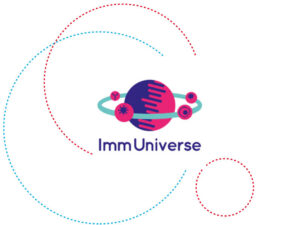The Luxembourg Centre for Systems Biomedicine (LCSB) of the University of Luxembourg is part of a new European transdisciplinary consortium aiming at transforming diagnosis and therapy of immune-mediateddiseases. Called ImmUniverse, this project will focus on common biomarkers in Ulcerative Colitis and Atopic Dermatitis. It has officially kicked off its activities on 24-25 February 2020.
By looking into the common disease mechanisms of Ulcerative Colitis and Atopic Dermatitis, the 26 European partners collaborating in this new research project aim at improving diagnostic and therapeutic options for patients living with these conditions. Through molecular profiling techniques, the team will identify signatures of biomarkers and mechanistic principles which reveal information on disease severity and progression enabling personalised therapy decisions for each patient at the right time. The project will run for a period of five years with a total budget of EUR 31 million provided by the Innovative Medicines Initiative (IMI 2), a Joint Undertaking of the European Union and the European Federation of Pharmaceutical Industries and Associations (EFPIA). Of the total budget, 50% are contributed by the EFPIA partners and 50% by the EU.
A heterogeneous group of diseases
Immune-mediated inflammatory diseases (IMIDs) are an increasing medical burden in industrialised countries worldwide. They are characterised by an enormous heterogeneity with regard to disease outcome and response to targeted therapies, which often cannot be adequately tailored to individual patients. Hence, an in-depth understanding of this heterogeneity and the biomarkers which predict disease control and therapy response over time are important prerequisites for future precision medicine strategies in IMIDs. The pathogenic components (“omics”) responsible for the disease outcome in each individual patient, i.e. environment, genes, gut microbiota or the immune system, are remarkably multifactorial, with thousands of constituents all interacting with and impacting on each other.
International and interdisciplinary consortium
ImmUniverse has been formed as a European transdisciplinary consortium to tackle these unmet needs and pave the way towards a truly personalised disease understanding of two different IMIDs: Ulcerative Colitis and Atopic Dermatitis. Following a unique cross-disease approach, the multinational project will fill the gap and address the limitations of current studies by systematically comparing the complex interactions between recirculating immune cells and the respective tissue microenvironment. The novel, circulating biomarker assays are expected to improve diagnosis, inform about disease severity and progression early in the clinical course, and enable treatment response and remission monitoring.
To this end, the ImmUniverse research team will employ state-of-the-art multi-omics profiling technologies, including single-cell RNA sequencing, metabolomics and advanced data management and bioinformatics pipelines.
“Unlike previous studies in the field, we will specifically compare signatures from the same individual over time, capturing the full range of disease activity. We expect this approach to provide us with valuable insights into the interaction between the factors affecting disease progression and therapy response”, says Professor Silvio Danese, Professor of Gastroenterology at Humanitas University in Milan, Italy, and Scientific Coordinator of the project.
The LCSB leads bioinformatics approaches
Within the consortium, the LCSB is leading the bioinformatics activities: building platforms and developing strategies to facilitate the efficient management and analysis of the data collected. The members of the Bioinformatics Core of the LCSB will design and implement a secure IT infrastructure allowing long-term housing of data within the consortium and access for all partners. They will be in charge of data curation and harmonisation, as well as establishing a virtual biobank to catalogue biospecimens collected. The team will also work on data integration and analysis, for example developing machine learning methods for multi-omics based prediction and disease classification.
The LCSB researchers will use the expertise they acquired working in previous IMI consortium such as eTRIKS and Aetionomy, and leverage the open source and open data principles developed within these projects.
Project partners
The project team comprises 16 academic partners, led by Humanitas University, five industrial project partners, co-led by GlaxoSmithKline (GSK) and Sanofi, as well as two small and medium-sized enterprises. This includes IMID-experienced clinicians and drug developers, basic immunologists, bioinformaticians as well as biotechnology and clinical development experts. Many of the partners have been involved in defining both European and international standards for interdisciplinary clinical care for IMIDs patients, with the intent to facilitate the transfer of high-quality clinical data and biomaterials into clinical research. Furthermore, the consortium is complemented by three European patient organisations to ensure efficient dialogue and a continuous focus on the actual needs of patients living with Ulcerative Colitis and Atopic Dermatitis.
- Austria
AIT Austrian Institute of Technology GmbH
JOANNEUM RESEARCH Forschungsgesellschaft mbH
- Belgium
European Federation of Allergy and Airways Diseases Patients’ Associations
European Federation of Crohn’s and Ulcerative Colitis Associations
Katholieke Universiteit Leuven
Vlaams Instituut voor Biotechnologie
- Denmark
Aarhus Universitet
Aarhus Universitetshospital
- France
Centre Hospitalier Régional Universitaire Nancy
- Germany
Christian Albrechts-Universität zu Kiel
EURICE – European Research and Project Office GmbH
Ludwig-Maximilians-Universität München
Sanofi-Aventis Deutschland GmbH
- Italy
Humanitas University
Instituto Superiore de Sanità
Scuola Superiore di Studi Universitari e di Perfezionamento Sant’Anna
- Luxembourg
European Patients Forum
Information Technology for Translational Medicine (ITTM) SA
Université du Luxembourg
- Netherlands
Academisch Medisch Centrum Universiteit van Amsterdam
Radboud Universitair Medisch Centrum (Radboudumc) Nijmegen
- Switzerland
Novartis Pharma AG
- United Kingdom
Eli Lilly and Company Limited
GlaxoSmithKline Research & Development Limited
Pfizer Limited
University of Cambridge
